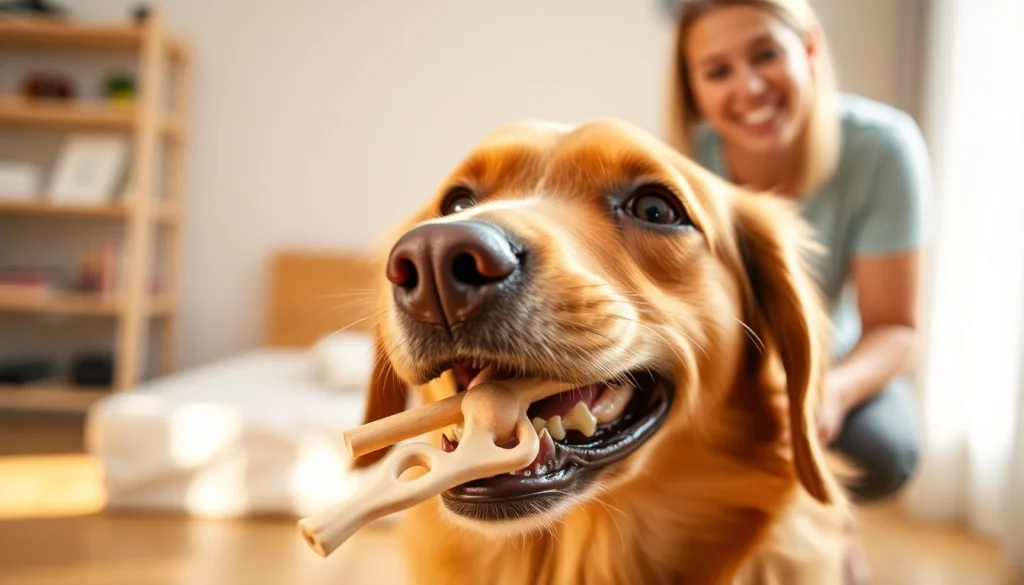Top Dog Dental Cleaning Products for a Healthy Smile

Importance of Dental Care for Dogs
Just like humans, dogs require regular dental care to maintain optimal health. Neglecting dental hygiene can lead to various health issues, including painful infections, tooth loss, and even systemic diseases. Effective dental care can significantly improve a dog’s quality of life and longevity. A critical step in this journey is integrating the best dog dental cleaning products into your dog’s routine.
Understanding Canine Dental Health
Canine dental health encompasses the condition of a dog’s teeth, gums, and other structures that support the mouth. Dogs are prone to various dental problems, primarily due to their chewing habits and dietary preferences. Understanding the vital aspects of canine dental health involves knowing about the common types of dental diseases and the preventative measures pet owners can adopt. Regular dental care is as crucial for dogs as regular exercise and veterinarian check-ups, setting a firm foundation for your dog’s overall well-being.
Common Dental Issues in Dogs
Dental issues in dogs can range from mild tartar build-up to severe periodontal disease. The most prevalent conditions include:
- Plague and Tartar Build-up: A sticky film of bacteria that gets hardened over time if not removed, leading to bad breath and potentially gum disease.
- Gingivitis: Inflammation of the gums; early sign of periodontal disease which can result in bleeding and pain.
- Periodontal Disease: This serious condition arises from untreated gingivitis, leading to tooth loss and bone loss, along with chronic pain.
- Oral Tumors: These can occur within the mouth, requiring immediate veterinary intervention.
Identifying these issues early can save your pet from unnecessary pain and costly treatments.
Signs of Dental Problems
As a responsible pet owner, it’s essential to recognize the signs of dental problems in your dog. Some common indicators include:
- Bad breath that doesn’t improve with cleanings.
- Difficulty eating or chewing food.
- Excessive drooling.
- Swollen or bleeding gums.
- Visible tartar build-up or discoloration on teeth.
If any of these symptoms are observed, it’s crucial to consult a veterinarian for a thorough dental examination.
Types of Dog Dental Cleaning Products
There is a variety of dog dental cleaning products available that can help maintain your dog’s oral hygiene. Choosing the right product often depends on your dog’s needs, preferences, and any specific dental issues they may have.
Dental Chews: Why They Work
Dental chews are a popular option for dog owners looking to enhance their pet’s dental health. These treats are specifically designed to reduce plaque and tartar while also satisfying a dog’s natural urge to chew. The mechanical action of chewing removes debris and can help massage gums, leading to better overall oral health. Look for chews that have the Veterinary Oral Health Council (VOHC) seal of approval, ensuring their effectiveness.
Toothpaste and Brushes for Dogs
Another cornerstone of canine dental care is the use of toothpaste and brushes made specifically for dogs. Regular brushing can significantly reduce plaque and tartar build-up. It’s essential to use toothpaste that is safe for dogs; human toothpaste can be harmful to pets due to ingredients like xylitol. Many pet stores offer dog-friendly flavors to make brushing more appealing. Consistency is key—aim to brush your dog’s teeth daily for maximum benefit.
Water Additives for Preventative Care
Water additives provide a convenient alternative for pet owners struggling to brush their dog’s teeth regularly. These solutions are mixed into your dog’s water and work to reduce plaque and fight bad breath with each sip. While not a substitute for brushing, they can be a beneficial addition to your dog’s dental care routine, especially for those pets that resist traditional cleaning methods.
Selecting the Best Dental Products for Your Dog
With the diverse array of dental products available, selecting the right one for your dog can be daunting. However, careful consideration can lead to making informed choices that suit your pet’s specific needs.
Factors to Consider When Choosing
When selecting dental cleaning products for your dog, consider the following factors:
- Age: Puppies may require different dental care than older dogs.
- Health Condition: Dogs with existing dental issues may need specialized products.
- Preference: Some dogs may prefer chews over brushing, while others might enjoy flavored toothpaste.
- Ingredients: Review the ingredients list for any allergens or harmful substances.
Evaluating these criteria will help you choose a product tailored to your dog’s unique profile.
Reviews and Recommendations
Checking reviews and seeking recommendations from veterinarian professionals can also guide you in product selection. Websites and forums dedicated to dog care often provide insights from other pet owners, sharing their experiences with specific products.
Moreover, there are several award-winning products recognized by veterinarians for their effectiveness in dental care, so taking note of these can be beneficial.
Price vs. Quality: Finding the Balance
While it can be tempting to opt for the cheapest dental products, it’s essential to consider the balance between price and quality. Low-cost products may not provide effective results and could lead to longer-term health issues, which are more costly in terms of treatment. Look for products that offer good value through high-quality ingredients and proven effectiveness.
How to Introduce Dental Products to Your Dog
Introducing dental health products to your dog should be a gradual process to ensure they become accustomed to the products and routines without feeling stressed. A positive approach is key to creating a successful dental care routine.
Making Dental Care Enjoyable
To encourage positive associations with dental care, start with products that are appealing to your dog, such as flavored toothpaste or dental chews. Use a gentle tone and incorporate praise during brushing sessions. This approach helps your dog view dental care as a treat rather than a chore.
Creating a Routine
Establishing a dental care routine is crucial for long-term effectiveness. Choose a specific time each day that fits conveniently into your schedule. Consistency is important, as it helps instill good habits and allows you to monitor any changes in your dog’s oral health closely.
Monitoring Your Dog’s Response
Watch your dog’s behavior closely when introducing dental products. If your dog appears anxious or resistant, consider alternately trying different methods or products to find what works best for them. Regularly evaluating the effectiveness of your efforts will also guide adjustments in routine or product selection as needed.
Maintaining Your Dog’s Oral Health
Once you’ve established a dental care routine, it’s important to maintain your dog’s oral health through additional measures that support their ongoing well-being.
Regular Vet Check-ups
Routine veterinary check-ups are vital for catching dental issues before they escalate. Many vets recommend annual or semi-annual dental cleanings, allowing professional care to complement your home care efforts. These visits can include professional cleaning, examinations, and possibly further treatments if needed.
Diet’s Role in Dental Hygiene
The diet you choose for your dog can significantly affect their dental health. High-quality, dry dog food can help reduce plaque build-up compared to softer diets. Additionally, some brands offer specially formulated dental diets that are designed to promote dental health. Including raw bones can also serve as a natural way to promote scraping and cleaning of your dog’s teeth, but they require supervision to avoid choking hazards.
Additional Home Care Tips
In addition to brushing and chews, consider incorporating the following practices into your pet’s dental hygiene regimen:
- Regularly check your dog’s mouth for signs of trouble.
- Encourage chewing toys that are designed for dental care.
- Consider incorporating fresh fruits and vegetables safe for dogs, such as apples or carrots.
Being proactive about your dog’s dental care can lead to a healthier, happier life for them.







